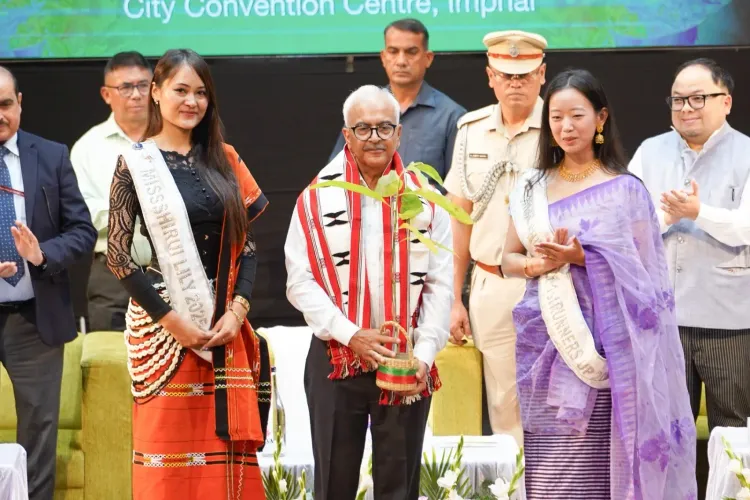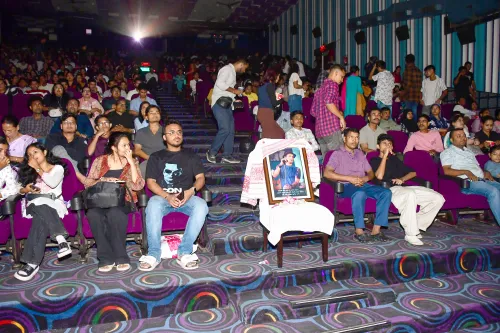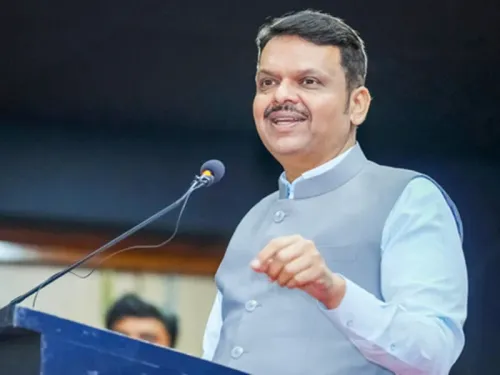How Can Manipur's Citizens Combat Deforestation and Climate Change?

Synopsis
Key Takeaways
- Immediate action against climate change is essential.
- Planting trees symbolizes a commitment to the environment.
- Traditional conservation practices play a vital role.
- Government and community collaboration is key.
- Every household should aim to plant and nurture trees.
Imphal, July 7 (NationPress) Manipur Governor Ajay Kumar Bhalla emphasized on Monday the urgent need for citizens to tackle the pressing issues of deforestation, unsustainable resource management, and climate change. He called upon the public to take immediate action rather than procrastinating.
During a tree planting event at Kangla Fort Complex as part of the nationwide initiative 'Ek Ped Maa Ke Naam 2.0', the Governor stated that planting trees serves as a vital strategy in combating the climate emergency. He also participated in the Grand Finale of the 76th Van Mahotsav held at the City Convention Centre.
In his address, Bhalla celebrated the ecological richness of Manipur and the biodiversity found in its hill areas, recognizing the traditional forest conservation efforts by local indigenous groups. This year's Van Mahotsav coincided with the launch of 'Ek Ped Maa Ke Naam 2.0', a visionary initiative by Prime Minister Narendra Modi aimed at encouraging every citizen to plant a tree in honor of their mothers, symbolizing a tribute to Mother Earth.
He praised the Forest Department for successfully planting over 1.3 million tree saplings across 16 districts in just one week. The Governor also commended their innovative approach of using recycled plastic bottles for sapling fencing, advocating for this sustainable model to be adopted statewide.
Highlighting the deep cultural and spiritual connections between local communities and nature, he referenced traditional practices such as the Meiteis' Umang Lai Haraoba, Tangkhul’s Luira Phanit, Kukis’ Chavang Kut, and Kabui’s Kangchingba, which showcase a profound respect for land, water, and forests.
“These cultural expressions are not merely traditions,” Bhalla remarked. “They convey messages of gratitude and harmony that must be preserved for future generations.” He urged every citizen, including children and parents, to plant a tree dedicated to their mothers, making it a living testament of love, gratitude, and shared responsibility for the planet.
Quoting environmental martyr Amrita Devi Bishnoi, he stated, “If a tree is saved even at the cost of one’s life, it is worthwhile.” The Governor articulated the essence of Van Mahotsav as a celebration of life and a tribute to nature, asserting, “Climate change is not a future threat; it is our current reality. With rising temperatures, unpredictable rainfall, and extreme weather becoming common, the act of planting a tree stands as one of the most impactful strategies we have to face this crisis,” Bhalla said.
He unveiled a book titled 'Forest and Foods', which delves into the connection between forest resources and traditional diets. In a gesture promoting environmental consciousness, Bhalla handed saplings to 16 students from each district.
During the event, he honored painting competition winners, individuals who voluntarily assisted in combating forest fires, and distributed tree saplings to student representatives from various districts. The gathering concluded with a collective commitment to protect forests, rivers, and hills, fostering a greener Manipur.
The Governor encouraged every household to plant at least one tree and care for it over the years as a symbol of gratitude, responsibility, and hope. The event was well attended by Principal Chief Conservator of Forests (PCCF) Anurag Bajpai, officers, educators, students, and community leaders.









